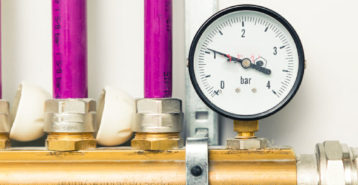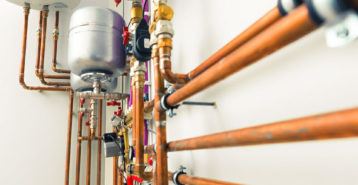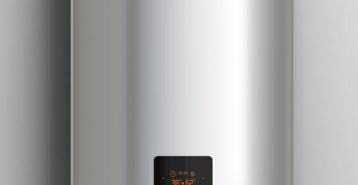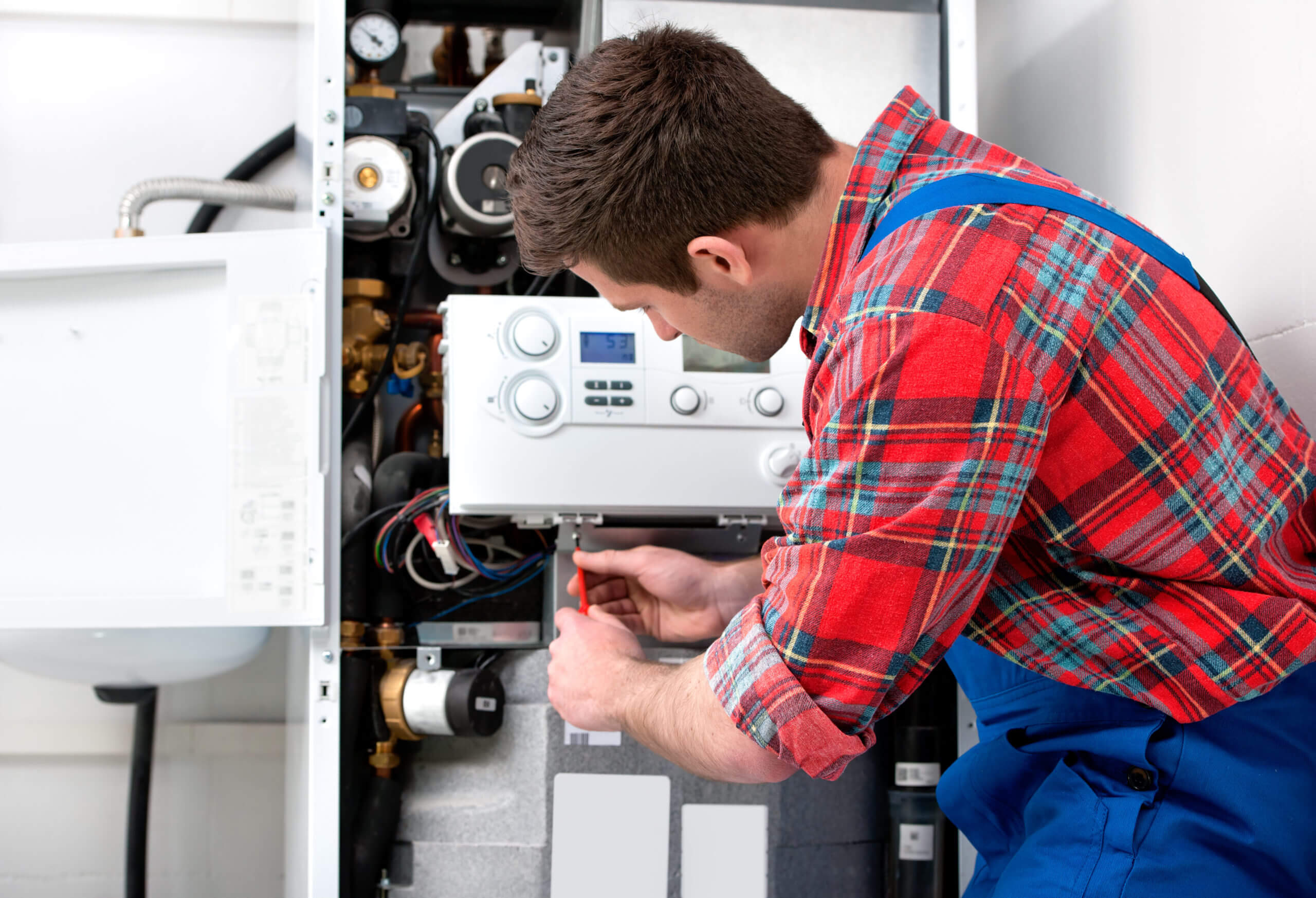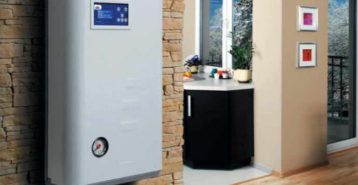How Much Does It Cost to Replace a Gas Boiler?
On average, U.S. homeowners spend $8,500. Your gas boiler replacement costs will include the boiler itself plus labor, materials, and permits.
- Boiler (equipment only): $2,000 to $6,000 (standard to high-efficiency)
- Labor and Materials: $3,500 to $6,500 (removal, new venting/liner or PVC, gas and water connections, controls, startup)
- Typical Total: $6,500 to $11,500
You’ll want to replace a gas boiler when repairs pile up, efficiency drops, or parts become hard to source. In this guide, you’ll see overall costs, what drives pricing, typical repair costs, running costs, how gas compares to other boiler types, sizing notes for a two-thousand-square-foot home, top brands, and tips to hire a pro.
Combi Gas Boiler Cost
A combi (combination) boiler provides both home heating and on-demand hot water in one wall-hung unit.
- Equipment: $2,800 to $6,500
- Installed Total: $7,500 to $12,000
It’s best for small to mid-size homes that want to free up space and eliminate a separate water heater. Be sure the hot-water output (gallons per minute) matches your shower and laundry needs.
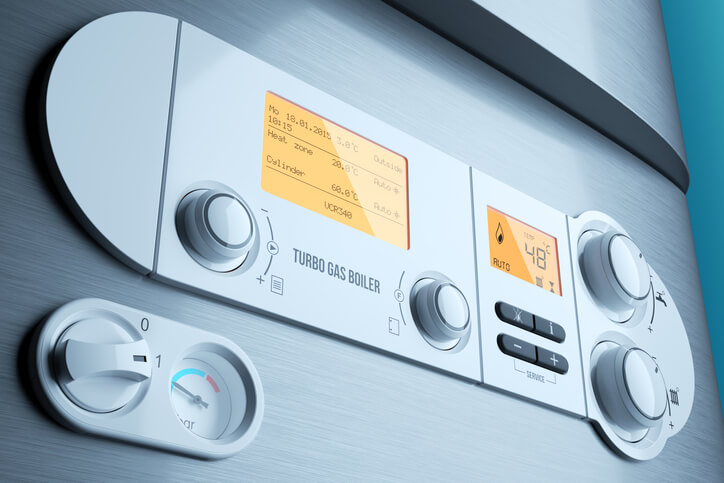
What Affects Gas Boiler Pricing?
A few key items move the number up or down.
- Boiler Type and Efficiency: Condensing models cost more upfront, but can lower monthly gas bills.
- Capacity (Size): Bigger or older homes often need units with higher heating output to keep up.
- Venting: Chimney liner or side-wall PVC venting adds materials and labor.
- Piping and Distribution: Pump(s), zone valves, expansion tank, air separator, and any radiator/baseboard updates will add labor and material costs.
- Controls and Thermostats: Outdoor reset controls and smart thermostats improve comfort and efficiency, but they can also raise your prices.
- Access and Local Labor: Tight spaces, code updates, and permit/inspection requirements influence time and cost.
Gas Boiler Repair Costs
Small fixes can extend the life of your boiler. If repair totals approach a large share of replacement cost — especially on an older unit — get a replacement quote for comparison.
| Repair / Part | Typical Cost |
|---|---|
| Circulator pump | $350 to $900 |
| Expansion tank | $200 to $600 |
| Pressure relief valve | $150 to $400 |
| Igniter or flame sensor | $150 to $400 |
| Thermostat | $150 to $500 |
| Zone valve (per zone) | $200 to $500 |
| Air vent / auto bleeder | $125 to $350 |
| Aquastat or control board | $300 to $900 |
| Minor leak diagnosis and repair | $250 to $750 |
| System flush / water treatment | $200 to $600 |
| Heat exchanger (if replaceable) | $1,200 to $3,000+ |
How Much Does It Cost to Run a Gas Boiler?
Monthly gas cost depends on your thermostat settings, insulation, boiler efficiency, and local gas rates.
- Mild Month: about $40 to $90
- Typical Winter Month: about $80 to $180
- Very Cold Month: about $150 to $300+
Gas Boiler Cost vs. Other Boiler Types
Gas is often the most economical to run where natural gas is available. Here’s how installed costs typically compare.
| Boiler Type | Typical Installed Cost | Notes |
|---|---|---|
| Gas (standard-condensing) | $6,500 to $11,500 | Widely available, good balance of cost and efficiency. |
| Oil | $6,000 to $10,000 | For homes without gas; fuel delivery and tank upkeep. |
| Electric (hot water) | $6,500 to $12,500 | Simple installs; higher monthly costs in many regions. |
| Steam (gas/oil) | $7,000 to $12,500 | Older homes with steam radiators; steam-specific piping. |
| Combi (gas) | $7,500 to $12,000 | Heat + hot water in one; size for both space heat and DHW. |
Oil
Oil boilers fit areas without gas lines. Equipment pricing is similar compared to gas, but you’ll need to pay for or consider items like fuel storage, deliveries, and annual burner tune-ups. Monthly costs depend on local oil prices and efficiency.
Steam
Electric
Electric units are easy to place and nearly 100% efficient at the appliance, but electricity often costs more per unit of heat than gas. Bills can be higher unless you have low electric rates or on-site solar.
Combination
Combi gas boilers do two jobs in one — heat your home and make hot water — so they save space and you won’t need a separate water heater. The total price is about the same as a high-efficiency gas boiler. Before you choose one, make sure its hot-water output (gallons per minute) can handle your routine. Think showers, laundry, and the dishwasher running at the same time.
How Much Is a Boiler for a 2,000 Square Foot House?
For a typical two-thousand-square-foot, reasonably insulated home, you’ll pay around $7,500 to $11,500.
Actual size depends on a heat-loss calculation (don’t size by square footage alone). Colder climates or older homes may need higher capacity.
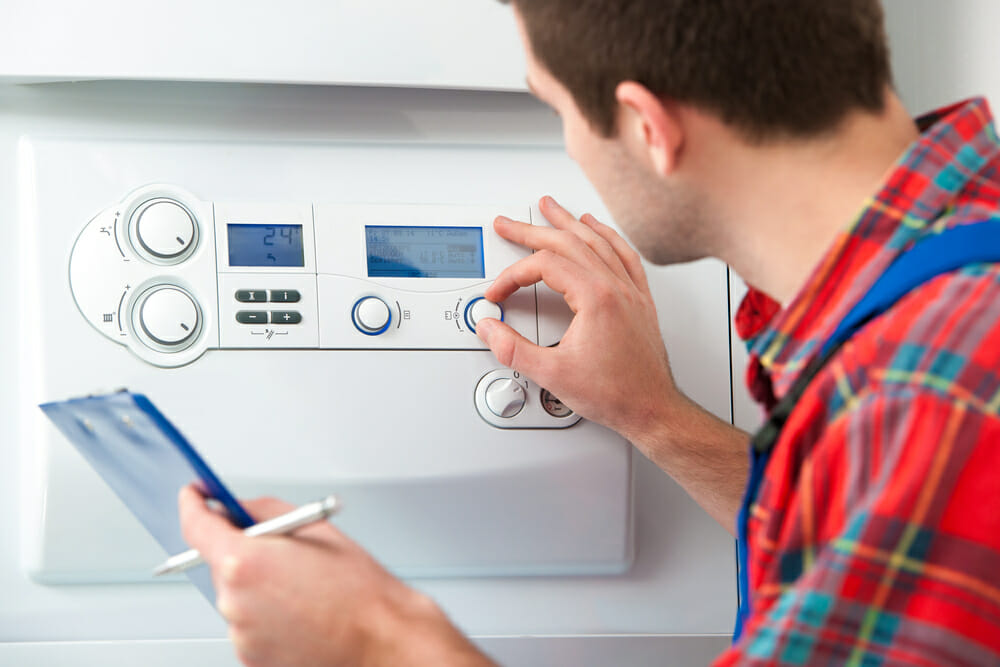
Top Gas Boiler Brands
Look for strong warranties, installer support, and readily available parts. See our top boiler brands guide for more.
- Weil-McLain: Broad lineup, durable cast-iron and high-efficiency models, deep U.S. support network.
- U.S. Boiler (Burnham): Trusted cast-iron and condensing options; good parts availability.
- Navien: High-efficiency wall-hung and combi units; compact footprints.
- Rinnai: Efficient wall-hung boilers and combis; strong hot-water performance.
- Bosch / Buderus: Quiet operation, efficient controls, European design heritage.
- Viessmann: Premium condensing technology; excellent modulation and controls.
How to Find a Boiler Installer
- Ask for 2 to 3 itemized quotes: Equipment model numbers, venting approach, parts, labor, permits, and timeline.
- Insist on a heat-loss calculation: Proper sizing improves comfort and lowers bills.
- Review venting and piping plans: Chimney liner or side-wall PVC, pumps, expansion tank, air separator, and zoning.
- Compare warranties: Parts and heat exchanger from the manufacturer, plus a clear labor warranty from the contractor.
If you’d like, we can connect you with pre-vetted local boiler pros to compare options and pricing side by side.
Compare top-rated HVAC pros in your area.
Read real homeowner reviews, explore qualifications, and view promotions. Modernize makes it easy to browse professionals and find one that will be perfect for your project.





